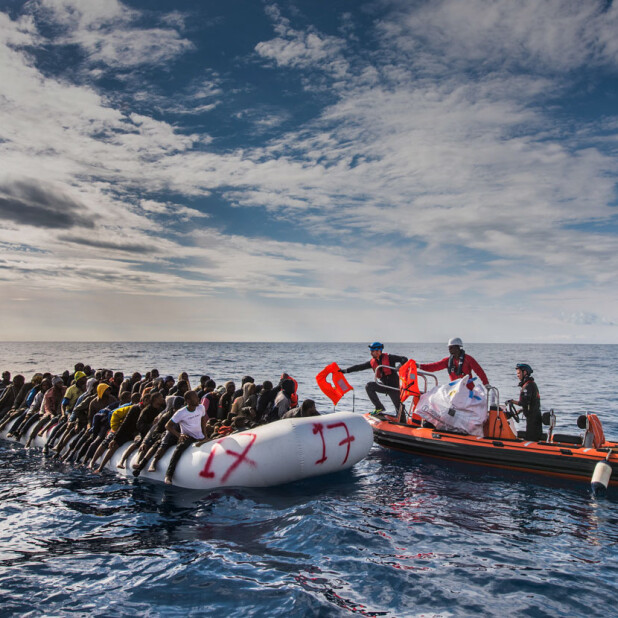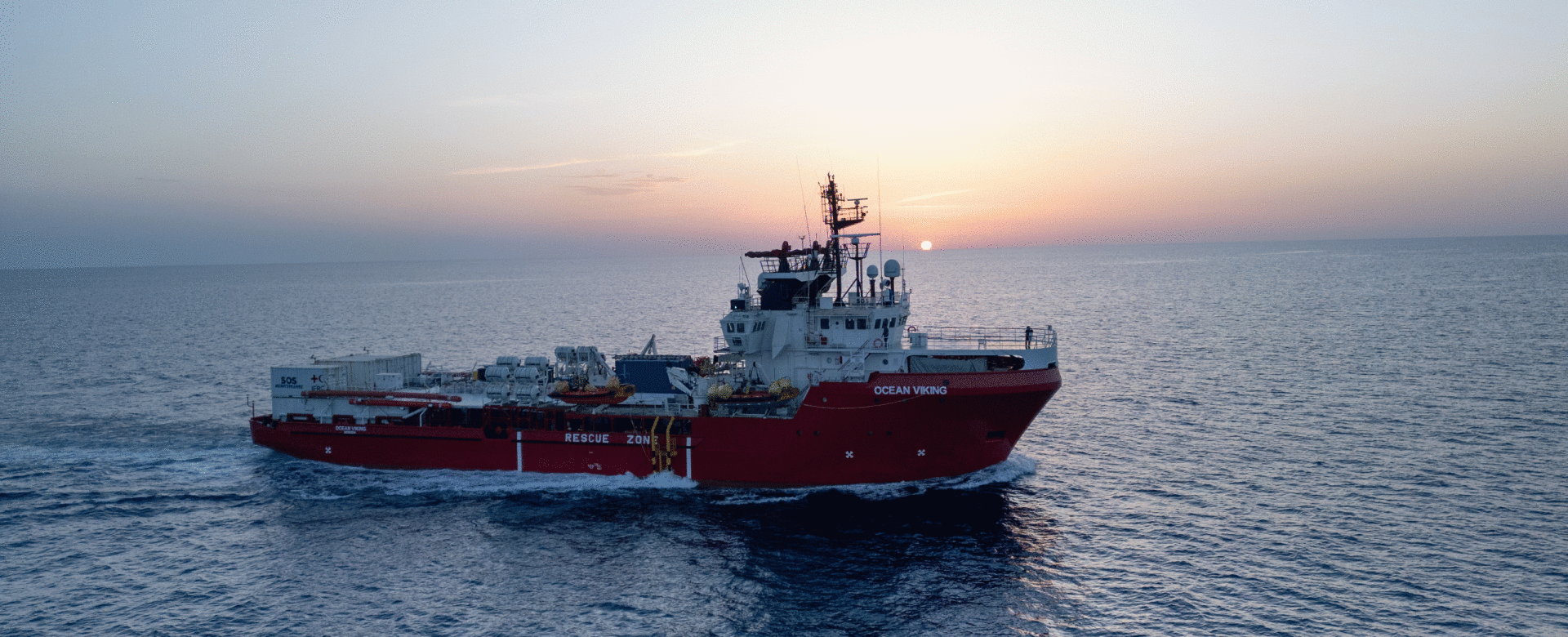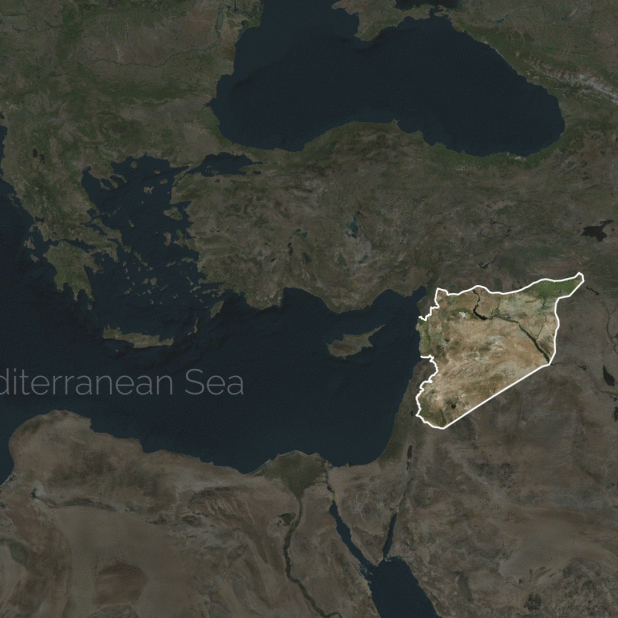
Rome, 11/10/20204 – The judge of the Court of Brindisi, Italy, with the appeal by SOS MEDITERRANEE challenging the administrative detention of the Ocean Viking ship earlier this year (08/02/2024), has decided to raise a question of constitutionality regarding Decree Law 1/2023, which was later converted into Law No. 15/2023: the so-called Piantedosi Decree.
On the 9th of February 2024, the Ocean Viking received a detention order from the Italian authorities following the disembarkation of 261 survivors in the port of Brindisi. The grounds for this detention were based on false accusations made by the Libyan maritime authorities.
During the proceedings challenging the detention of the Ocean Viking, the lawyers representing the NGO, Francesca Cancellaro and Dario Belluccio, presented an extensive long defense brief on the unconstitutionality of the Piantedosi decree. The key legal principle is that “a conduct that is aimed at saving the lives of others cannot be sanctioned.”
The legal brief highlights several elements of dubious constitutionality in the Piantedosi decree, the main ones being the compliance with
- The principle of proportionality and reasonableness between the sanction, being the detention of the ship, and respect for fundamental rights. “The principle of proportionality should always guide the decisions of the legislator when it comes to restricting fundamental rights,” the lawyers declared at the hearing. “In this case, there are fundamental rights at stake, both for those affected by the sanction of the law, such as the rescue ships, and for the shipwrecked individuals themselves“.
- The principle of precision. This is hindered because the decree subjects the determination of the Ocean Viking’s unlawful conduct to the assessments made by the authorities of a third state, in this case, Libya.
In addition to this, according to the SOS MEDITERRANEE defense team, Italy’s sanctioning of a Norwegian-flagged ship operating in International waters is also considered unconstitutional. Similarly, Italy’s sanctioning of the Ocean Viking for failing to comply with the instructions of another state’s authority (Libya) in International waters is legally questionable.
The judge of the court of Brindisi, Roberta Marra, has therefore referred the assessment of the compatibility of these elements to the Constitutional Court, challenging the legitimacy of the Piantedosi Decree.
“It is the entire structure of an unjust and discriminatory law that is being questioned,” says Soazic Dupuy, Director of Operations of SOS MEDITERRANEE, “and this is important for many reasons. First of all, the denunciations made by civil sea rescue organizations against this harmful and unnecessary law are now being validated from a legal standpoint.”
“Secondly,” S.Dupuy continues, “this development is even more important in light of the recent legislative interventions contained in the so-called ‘flows decree’ and ‘security decree’ of the Italian Law, which most probably would further tighten the sanctions and measures of the Piantedosi Decree, with the aim of making life impossible for those who save lives and bear witness in the Central Mediterranean. We hope that the Constitutional Court will recognize the unconstitutionality of this law, and send a clear message against the criminalization of the humanitarian actions of Search and Rescue NGOs.”
Credit picture: Tess Barthes / SOS MEDITERRANEE






